QuestionI have a 5 yr old Am Staff Terrier. I recently purchased a new house and moved away from my brother. My dog (capone) only knows my old house and living with my brother and me. Now he has to get used to just him and I in a new environment. Usually when I go to work he is fine but at night, if I go out, he will chew the door and wall the goes to the garage. This is the door I leave by, so he knows that is the way out. I tend to think this is separation anxiety, but I am wondering what can I do to help him. I am aware of medications on the market but will this help? Are there other, less chemical dependant, methods to make him more comfortable?
AnswerYour dog is demonstrating barrier frustration when he chews the wall and door through which you leave. He is frightened and insecure. A loved member of his pack has seemingly disappeared (to him) and he has been thrust into a new environment. His behavior tells me that you do not have psychological rank over this dog, something you need to address. Use positive reinforcement training to give this dog one strong behavior he can perform correctly 100% of the time. Learn about positive reinforcement training by going to karen pryor's website or reading Patricia McConnell Ph.D. or any other expert (with education, not someone who calls him/herself an 'expert' with no credentials) in positive reinforcement/operant conditioning. Once the dog has obtained one strong behavior (will take several weeks), ask him to earn everything: going out, being fed, being petted, etc. This will raise your psychological rank, and learning even one behavior will help this dog's cognitive abilities so that he can problem solve and not resort to hysterical behavior (as he is now.) Also, change your leave-taking rituals so that the dog is not cued. Examine what you do (everyone has a ritual and most are unaware of it) and change what you do every single day so the dog does not know when you are about to leave. The first few minutes are the worst; if the dog is not cued, he may not react. Additionally, do not LOOK AT, TALK TO or TOUCH the dog for FIFTEEN MINUTES before you leave. Saying "goodbye" sets the dog up for anxiety at your leave taking. The dog will not be insulted, that's human projection; pack leaders come and go without the by-your-leave of lower ranking pack members. Meanwhile, take this problem to your veterinarian. Clomicalm is a drug that can help take the edge off this dog's high state of anxiety and loss of control. It is not addictive and can be withdrawn easily. Talk to the vet.

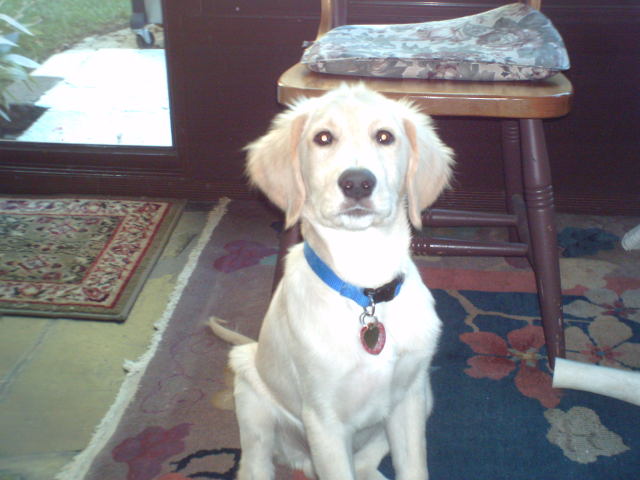 my 7 month old golden changed for the worse
QuestionRiley at 6 months
QUESTION: I got a gold
my 7 month old golden changed for the worse
QuestionRiley at 6 months
QUESTION: I got a gold
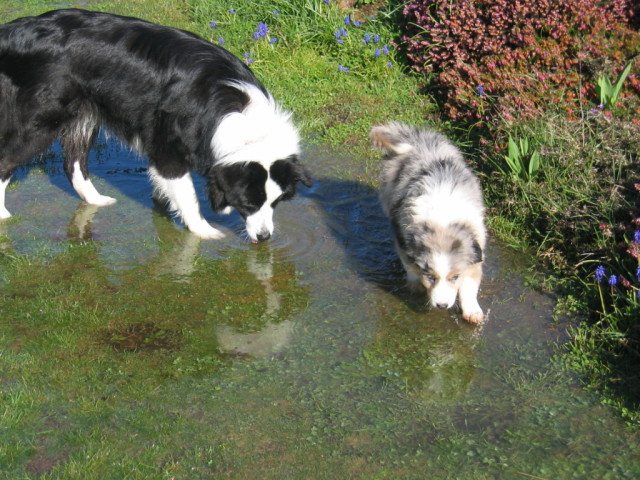 Dog in Heat?
QuestionLily and Jorge
QUESTION: Hello,
We have
Dog in Heat?
QuestionLily and Jorge
QUESTION: Hello,
We have
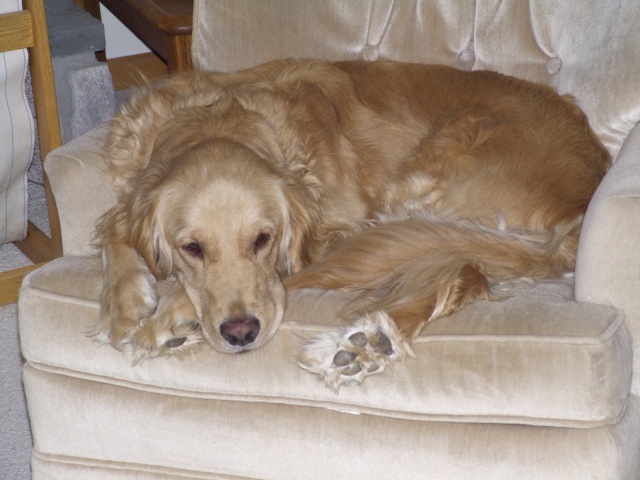 aggression in aging dog
Question
Niko
I have a thirteen year old, female, Samoy
aggression in aging dog
Question
Niko
I have a thirteen year old, female, Samoy
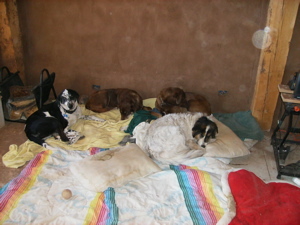 Sudden aggression within pack after a death
Question
Sudden aggression in o
We have an approximatel
Sudden aggression within pack after a death
Question
Sudden aggression in o
We have an approximatel
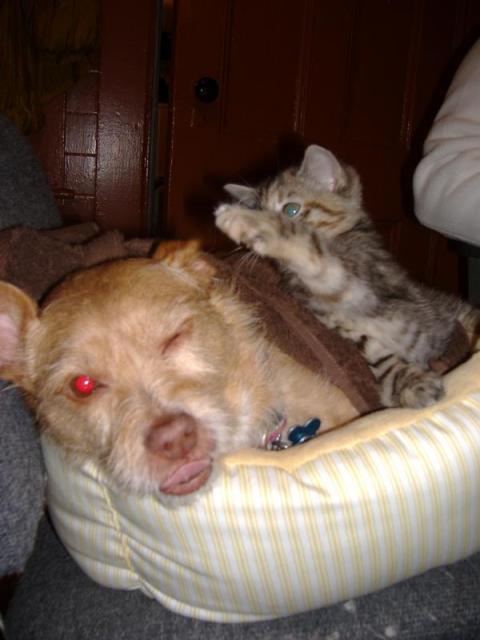 My dog is shaking and hiding under my bed recently
QuestionRorrie and Pencil
QUESTION: My dog, Rorr
My dog is shaking and hiding under my bed recently
QuestionRorrie and Pencil
QUESTION: My dog, Rorr